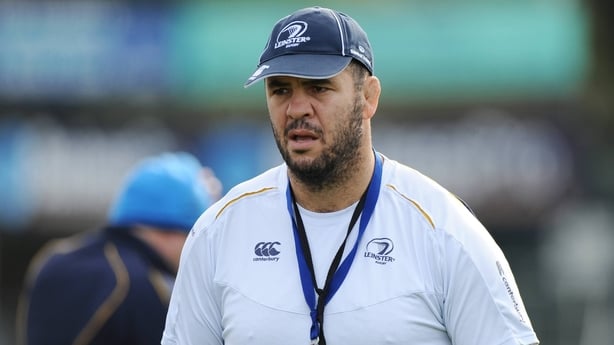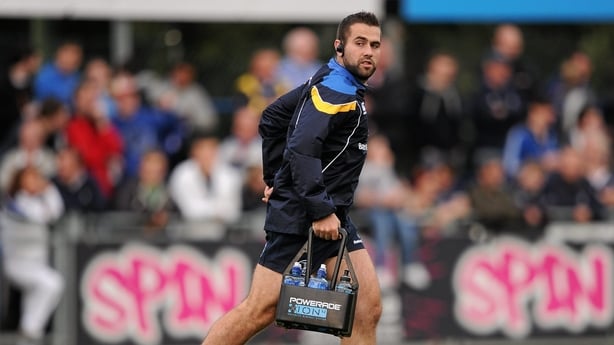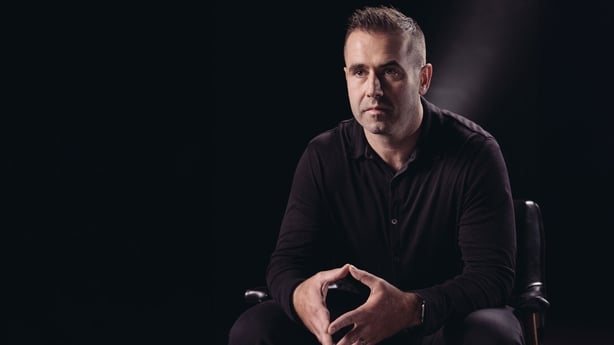The first weekend of the year, and a rare winter weekend when professional men's rugby in Ireland takes a few days off.
The Christmas schedule was kinder on the four provinces this season.
With Christmas and New Year’s Day both falling midweek, the traditional 'Winterpros’ fell neatly into their usual Friday and Saturday slots. Very little disruption to the calendar, with a late Christmas present of a weekend of rest in the BKT United Rugby Championship.
With the Christmas URC games falling in the middle of a palindromic schedule of Champions Cup and Test matches stretching from November to mid-March, the regular rotation of teams and resting of top stars during these games in December has been a sticking point for a number of years.
Those decisions wouldn't have been made on a whim, with an extensive database of minutes, training-load and injury history available to teams and coaches, which then get analysed and implemented by the IRFU and the four provinces.
The company that provides that data is Kitman Labs.
"You need to figure out how to ensure that the athlete is managed through that period," says Stephen Smith, founder and CEO of Kitman Labs, who believes that the draining 11-month rugby seasons we are now seeing will remain.
"These fixture congestions, schedule congestions, the length of the global calendar, I don't think that's going to change because the sport needs the money, the athletes need the money, the professionalism demands that.
"So I think what leagues and governing bodies are going to have to do is get really smart about how they protect their athletes through that. And I think we've seen that."
These days, Kitman Labs is a world leader in sports science, with major deals with the IRFU, as well as England, South Africa and Argentina’s rugby unions, in addition to the Premier League and some major US sports leagues across professional and collegiate sport. In total, they have partnerships with more than 2,000 teams, leagues and governing bodies across 26 countries.
Smith started the company back in 2012, but what is now a great oak grew from an acorn while he was working as an injury rehab specialist with Leinster Rugby in 2008.

At the time, the likes of Brian O’Driscoll, Gordon D’Arcy and Felipe Contepomi were spending too long on the sidelines, and head coach Michael Cheika (above) wanted answers.
"He [Cheika] was pulling his hair out, trying to figure out why, and who are these types of injuries occurring to? How long do they last? Why are they occurring? Why do some players have the issue last for way longer than others?
"And at that point in time, there just wasn't really any answers to it.
"He's a very demonstrative character, and he gets very emotional about things as well. The fact that we didn't have very good answers wasn't really all that acceptable to him.
"I loved working with him. He was an incredible leader. What I loved about him, why I wasn't terrified of him, was that he asked questions and he got very frustrated if people didn't have answers, or they at least didn't have a path to get him the answer.
"He wanted evidence and he wanted information. He didn't want opinions. And as we were able to start gathering some information and providing him that, he really got engaged in it.
"I think he believed that we had the right talent. He believed that we had the right strategy and game plan and that if we could have our best players on the field more frequently and that we were able to manage them from game to game that we would be successful."
"What the body doesn't like is too much change"
— RTÉ Sport (@RTEsport) December 7, 2024
The devil is in the data... Bernard Jackman (@bernardjackman) talks us through modern rugby's attitude to load management.#RTErugby
📺Watch Munster v Stade Francais LIVE on RTÉ2 pic.twitter.com/QvesyQCLOq
It would prove to be a correct prediction, as three Champions Cup titles in four seasons proved, the last two of those coming under Joe Schmidt. The more successful they got, the more those in rugby and beyond took note.
"I conducted my master's thesis and around the whole concept of combined risk factors as predictors of athletic injury. And he was a huge supporter of that whole approach.
"We had lots of people interested in how we were building that kind of success and that consistency at the club.
"We had some international teams and Premier League teams that came over and saw what we were doing. And then they were like, ‘Hey, we want to buy this’, but it wasn't a product.
"So that's how it started. We decided to spin it out then and create something that we could bring to market," Smith, who previously played All-Ireland League rugby with County Carlow, added.
While Cheika was the early driver for the data-led approach, Smith highlights former Leinster and Ireland head coach Schmidt as another who quickly bought into the numbers – an "objective" coach who always "wanted the detail".
By 2024, the ‘old school’ coach who may previously have scoffed at the influence of sports science, is very much a dying breed.

"I think there are a few coaches that come to mind that I got involved with that probably weren't as accepting of data and information. It was new to them, they didn't understand it. And in some cases, it's also down to the way that that's communicated to them.
"So we have to figure out ways: Do they understand probability?
"We can also tell them, ‘if we do these things in training, this is how likely we are to have this type of outcome. If we cover this amount of distance, these are the types of things that might occur in a game’."
With the level of data coming in, the information is only as useful as the coaching team who is implementing it.
"The quantity of the data that's coming out, the context of that data is just completely different than it was 10 years ago."
"We're not telling the teams what to do. That's not our role. There's incredibly smart people in these teams that have their own expertise, and I've honed their experience with those teams.
"I think the type of coaches coming through the ranks now, they were used to data being used with them every day. So now they're wanting that to come through as well.
"We were lucky at Leinster with the type of people that we had, just the culture of the environment was that you're either pushing forward or you're going backwards."
The levels of information and data teams are working with now is "insane" compared to Smith’s (below) early days implementing it with Leinster, he says.

As the technology improves, the understanding of that technology improves. Smith believes it has the power to not only prevent injuries and prolong careers, but to also improve the skill level of the players themselves.
"When we first started, we were trying to collect the training load information, and it was how much time you were out on the field.
"We now have wearable devices that are tracking every step, that are tracking asymmetry in terms of how somebody is moving, talking to us about accelerations, about decelerations, about changes of direction.
"We're also starting to see skeletal tracking systems come into play where there's optical cameras. We don't even have to put a wearable on anymore. Optical cameras are being put in stadiums and that's tracking like a human skeleton.
"So not only do we know, ‘this is how much they ran’, but now we know how they ran it. And then we can actually start to see how their bio, how their mechanics are changing in-game. That starts to allow us to do some really interesting things.
"It also tells us a lot about skill execution. If we can see what makes somebody's pass better than somebody else's, somebody's shot better than someone else's or someone's tackle better than someone else's, that will allow us to understand what are the right mechanics.
"That also then allows us to understand from a training perspective; what are the best training techniques that actually result in different types of technical execution or improve technical execution or decreases in technical execution?
"The quantity of the data that's coming out, the context of that data is just completely different than it was 10 years ago. And that's allowing us to do some really interesting things with it."
Listen to the RTÉ Rugby podcast on Apple Podcasts, Spotify or wherever you get your podcasts.


